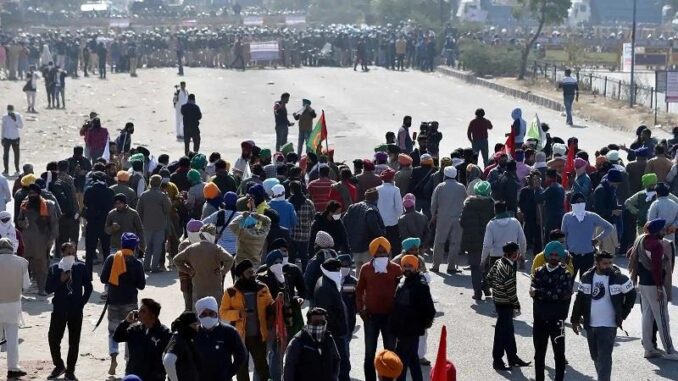

Image Courtesy:livemint.com
Thousands around the world rally in support of Indian farmers amid COVID-19. SabrangIndia delves deeper into the three agricultural Bills and the complaints held against these policies.
“The three agricultural bills passed by the Indian government are death warrants for farmers,” says Bharatiya Kisan Union-A’s (BKU-A) National President Rishipal Ambawta in defiance of these new policies. The Centre has garnered much hate from the agricultural sector for the three bills recently passed in the Parliament namely, the Farmers Produce Trade and Commerce (Promotion and Facilitation) Bill, the Farmers (Empowerment and Protection) Agreement on Price Assurance and Farm Services and the Essential Commodities (Amendment) Bill.
What are these laws?
According to the Gazette notification the Farmers’ Produce Trade and Commerce (Promotion And Facilitation) Bill aims to “promote efficient, transparent and barrier-free inter-State and intra-State trade and commerce of farmers’ produce outside the physical premises of markets.” The provisions of these laws can override State laws as well.
Issues with these laws are:
- Makes Agricultural Produce Market Committees (APMCs) become obsolete.
- Enables electronic trading for farmers disconnected from the virtual world.
- Does away with government subsidies previously enjoyed by farmers.
- States will not receive market fees from farmers.
- Against Minimum Support Price (MSP) system.
- Traders would hoard such products.
- This will affect food prices which in turn will hurt farmers’ sales.
- Traders can refuse farmers selling such products.

Illustration Credit: Derek Monteiro
According to Ambawta, these laws will serve as a death warrant for farmers. He especially criticised the logic of encouraging online trade in rural areas where even electricity is hard to come by. He questioned why the ruling-party was keen to implement these new Bills when the recommendations under the Swaminathan report were yet to be inculcated even after 12 years.
“This government only caters to the corporates, not to the farmers and workers in this country,” he says.. The third Bill deals with the Essential Commodities Act, originally created in 1955. It prevented the hoarding of certain essential commodities to prevent manipulation of stock. It also imposed a hoarding limit to keep the prices from surging. However, the Bill said that the Centre may regulate essential food items such as cereals, pulses, potatoes, onions, edible oilseeds and oils under extraordinary circumstances such as war, famine, extraordinary price rise and natural calamity. Along with the three Acts, farmers also oppose the Electricity Bill 2020. They have further criticised the central government during the course of the protest march for putting obstacles in the path of democratic assertion by India’s farmers.

Leave a Reply